Portal o energetyce
Nord Stream 2 – the monument of Russian kleptocracy
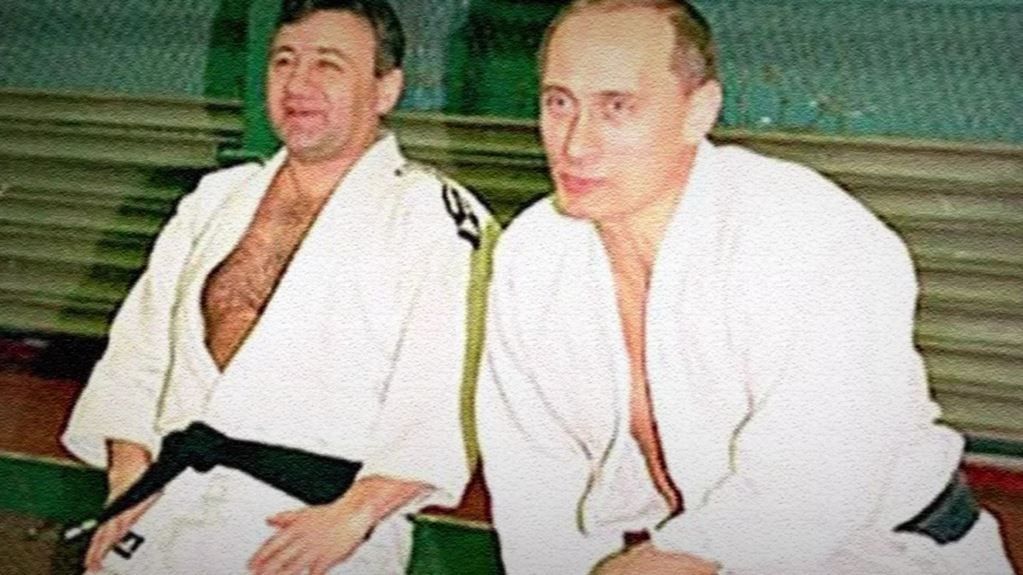
According to research by investment bank Sberbank CIB, all of Gazprom’s mega-projects, that is Nord Stream 2, Turkish Stream and Power of Siberia, may be paid back in several decades and are against business rules. They were decided to be run for a different purpose which is associated with Putin’s fiends. Energetyka24 portal examined the document in detail which was shortly after removed from the bank’s website and author of which was as quickly fired from the job.
At the end of May the report published by investment bank Sberbank CIB (investment arm of Sberbank) was published. The document, showing off the nature of Gazprom’s huge projects, was issued for the bank’s clients thinking of purchasing Gazprom’s shares. Although majority shareholder of Sberbank is the Russian state, the content of the report is crushing for the Russian concern.
Conclusions are clear – investors should keep far from Gazprom since the concern is more aware of subcontractors’ pockets than anything else. Yet, what is the more important from the Polish perspective, the report has proven that there is no economic reason for the Nord Stream 2 pipeline.
The power of absurd
Power of Siberia was the first project examined by the authors of the publication. Planned pipeline with a total length of 2158 km will have to link Kovyktinskoye field and Chayandinskoye field with China. Gazprom presents Power of Siberia as an example of exports diversification and a way for making Russia less dependent on gas exports to Europe. Apart from all, the project is being said to make profits in the future.
In the opinion of Sberbank’s experts the reality is totally different. In accordance with the report, the project is illogical and has no grounds from the economic point of view. The cost of construction is about $ 55 billion (34% of CAPEX for 2018-2022) and causes many inconveniences.
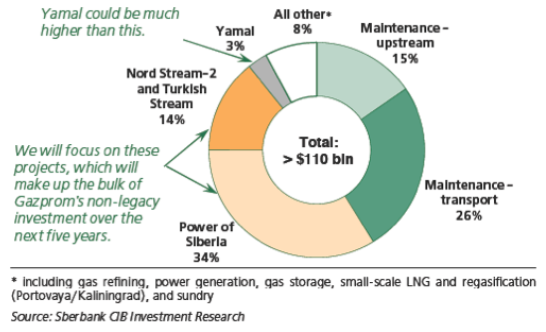
Firstly, gas should be cleaned of impurities, especially from helium, before exporting. Therefore, it is necessary to build dedicated and expensive infrastructure. Secondly, the pipeline need to be built in hostile environment with low temperatures and ground freezing. All of these have negative impact on extraction costs. Finally, in order to fulfil Power of Siberia with gas, it is necessary to invest in new deposits which are characterised by low reservoir pressure.
Analytics have presented Altai pipeline, also known as Power of Siberia 2 or Western Power of Siberia, as an example of alternative solution. The main advantage of Altai is lower cost. Instead of $60 billion, it would require only $10 billion for investments. This would also avoid all of the inconveniences associated with construction of Power of Siberia – gas would be transmitted from deposits already in operation, purified in existing plants and the pipeline would be constructing alongside existing infrastructure which would ease the whole process.
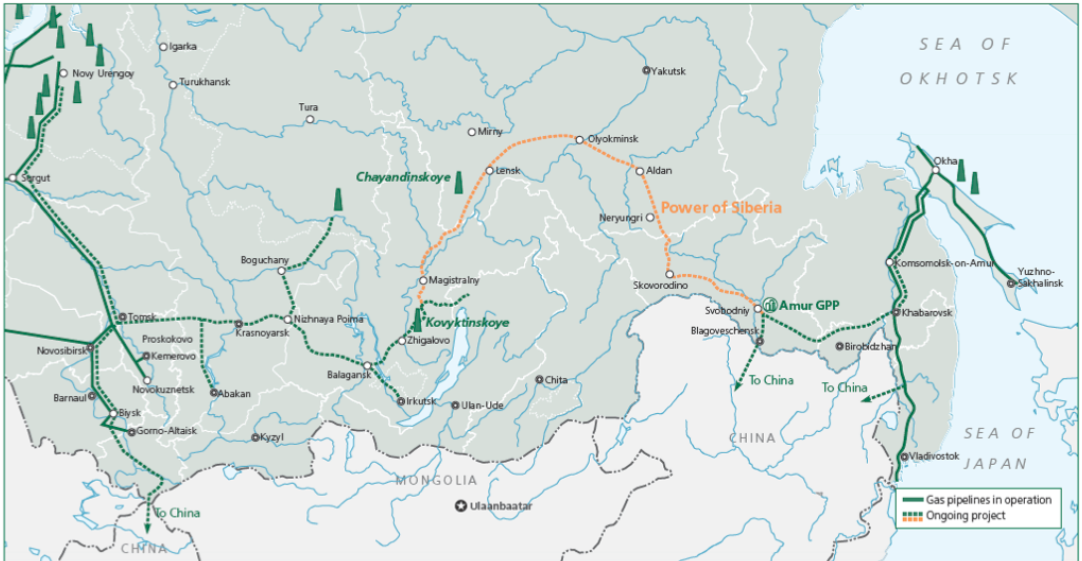
Another problem with Power of Siberia are contractual provisions. According to Sberbank’s estimates, gas transmitted via the pipeline will be sold to China without downside protection, at a simple slope between 10% and 11% to the oil price. It is worth highlighting that profitability of the contract was estimated with price per barrel to be $65. This means time required to amortise the investment has significantly extended. Currently this time is about 16 years, analytics reported.
What is more, with current natural gas prices on the world market and new sources of supply to China, we cannot exclude that the price will be unattractive for the Middle Kingdom which will demand the rebate.
Bypassing Ukraine… and logic
Other projects analysed in the Sberbank’s report, Turkish Stream and Nord Stream 2, are closer geographically to our market. In official Russian narratives Nord Stream 2 is especially non-political and profitable.
CEO of Gazprom, Alexey Miller, has convinced that shortening transport routes to Germany and omitting transit charges (which stand at about $2 billion annually) makes possible to return construction costs of Nord Stream 2 very soon. The same with Turkish Stream – omitting Ukraine on route to Turkey would allegedly give huge savings.
Authors of the report have torn this arguments to shreds. According to Sberbank’s calculations, Nord Stream 2 will not recoup investments for 20 years, even assuming 60% capacity utilisation! That is not so bad compared to Turkish Stream that will not break for a half of the century!
However, analytics do not limit themselves to objections of economic nature only. In their opinion even completion of Nord Stream 2 on time does not guarantee using of the pipeline’s transmission capacity. Putting into service of Eugal pipeline, which will have to transmit additional volumes of gas from the coast to interior, before 2020 is still in question.
Crony Gazprom
If none of Gazprom’s mega-projects has economic justification, why are they implemented? The easiest answer is… because Putin ordered so and the concern is his foreign policy instrument. It is only partly true, yet especially clear in the context of Ukraine. The conclusion is also close to authors of the report. But why it was decided to pump billions of dollars into Power of Siberia?
Looking for modus operandi of Gazprom, authors suggest to abandon corporate logic according to which a company is focused on making up EBIDTA to satisfy its shareholders. But the concern, which maxim is ‘Gazprom – national treasure’, is giving up on the logic.
Analysts argued that Gazprom has acted in favour of the contractors hired to build the pipelines, not Gazprom itself or its shareholders. We are going to examine the three of projects in this way.
Power of Siberia, unlike Altai pipeline, lies entirely within the border of Russia. The investment requires about $55 billion, out of which 27% covers the pipelines, 43 % - commencement of production and 30% - gas station Amur GPP. China offered its participation in the project but Russia rejected the idea. In results, Stroytransgaz and Stroygasmontazh remained the chief contractors.
Golden Friends
The first one is controlled by Gennady Timchenko, number 5 on the list of the richest Russians by Forbes with about $16 billion. His business career started in 80-ties when Mikhail Gorbachev weaken the state monopoly on the oil refining sector. He jumped from the Ministry of Foreign Trade to the private sector, taking position in the refinery near Leningrad.
Timchenko, taking advantage of KGB support, started selling oil products to the West. Up to now Gunvor, which was a true gem among his companies, is one of the biggest traders in the world. Yet, starting cooperation with Vladimir Putin, at this time engaged in international cooperation in mayor office, was a decisive moment in his career.
Together they set up a company Golden Gate, responsible for implementation of the Oil for Food Program, based on the barter exchange. However, although oil was indeed exported, no food ever came to Russia, and Timchenko was the one who made profits. The story tied him and Putin. Nothing was more in value for the newly born Kremlin’s elites than details on Putin’s scams.
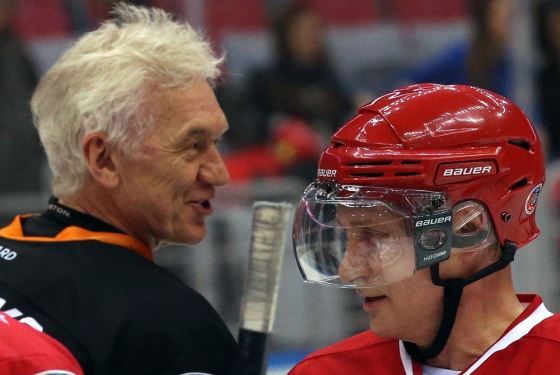
Over next years the oligarch back Putin up, obeying him in every case and – in return – cashing in on contracts with state-owned companies, including Gazprom. At the moment among the most important companies in which Timchenko holds shares are Gunvor, railway operator Transoil, Stroytransgaz, gas producer Novatek and many more.
Sparring partner in business
The second contractor is Stroygasmontazh run by another Russian oligarch, Arkady Rotenberg, whose private properties are valued for $3 billion. The very beginning of his career is dated to 60-ties when he was just a teenager. That is when he joined judo and sambo courses and got to know Russia’s future president.
The friendship of these two appeared to be really strong. In 90-ties Rotenberg was Putin’s sparring partner. In 1998 he set up judo club Yawara Neva, of which Putin became the honorary president. A co-owner of the club was another close friend of Putin, Gennady Timchenko.
Arkady Rotenberg, along with his brother Boris, is the owner of Stroygasmontazh and a shareholder of some other enterprises. The fact that his company received lucrative contacts for construction of the infrastructure for the Olympic Winter Games in Sochi (of which costs exceeded a few times estimated budget) may speak about his position.
The well-functioning mechanism of Kremlin
Considering close relation of two oligarchs with Putin, they were put in the sanctions list. Despite popular opinions, sanctions indeed hit their purses. Throughout the year Timchenko’s fortune shrank by $4,6 billion (30%) and Rotenberg’s decreased by $2,6 billion (almost 60%). Experts in Kremlinology have started to consider possible collapse of Putin’s system due to dissatisfaction of harmed oligarchs.
This is the point when we touch the very essence of Gazprom’s mega-projects and other undertakings, like the Olympic Winter Games in Sochi, bridge between Crimea and Russian mainland or football championship. All of them required huge investments on which Putin’s fiends made profits. Timchenko and Rotenberg are in the core of the group.
Russian president has been a guarantee of their wellbeing, while they have guaranteed him their support and loyalty. The system is circular and contracts for mega-projects’ implementation only sustain its existence.
If we look at Gazprom’s investments from this perspective, they appear to be logical. Companies run by Timchenko and Rotenberg are involved not only in construction of Power of Siberia. The rest of mega-projects are designed to become profitable for certain people.
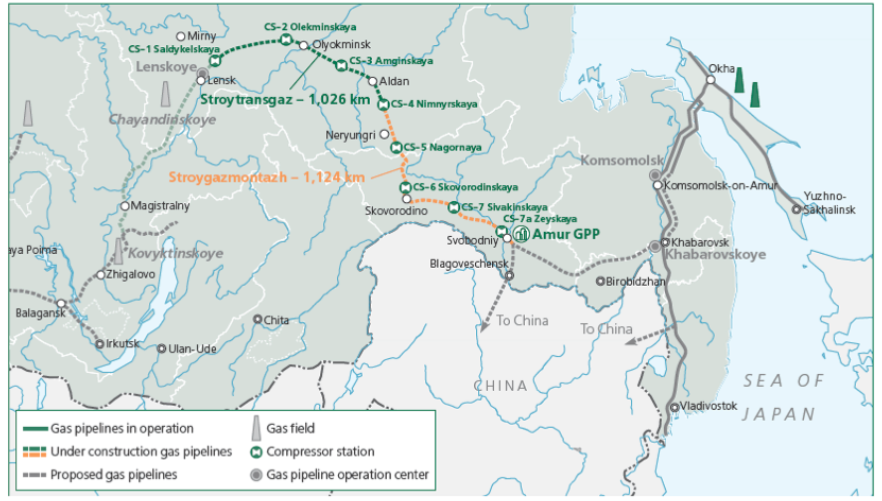
In Turkish Stream case the investment in offshore transition network is worth about $10 billion. Nord Stream 2 requires immediate construction of 1000 km gas pipeline which will consume additional $5 billion. The contract has been awarded without open binding to Stroytransneftegaz, a subsidiary of Stroytransgaz.
Non-political project?
Russian diplomacy has repeatedly promoted official narratives on Nord Stream 2 as exclusively economic project, having nothing in common with politics. Recently the same view has been expressed by Dmitry Peskov, Press Secretary for the President of Russia. Yet, the report has showed the opposite is true. Nord Stream 2 and other mega-projects projects are not beneficial even to Gazprom. They have another purpose which is satisfying needs of Putin’s friends and – in consequences – strengthen the oligarchic system.
Whoever speaks differently and indicates evidence, is severely punished. Author of the report, Alex Fak, as well as his supervisor Aleksandr Kudrin, is no longer Sberbank’s employee. Igor Bulantsev, CEO of Sberbank CIB, described Fak’s behaviour as unprofessional and ‘violating ethical standards’.
The sharp reaction of Kremlin is no surprise. Nord Stream 2 needs to be built since it is necessary for the proper functioning of the Russian system. Still, in the West the project has to be presented in a specific way, preferably appealing to ecology and profitability. As it appears, Poland along with Baltic states have been right to oppose Nord Stream 2.
The pipeline is going to harm everyone, including Russian taxpayers. Who can benefit? Only Putin and his closest friends.